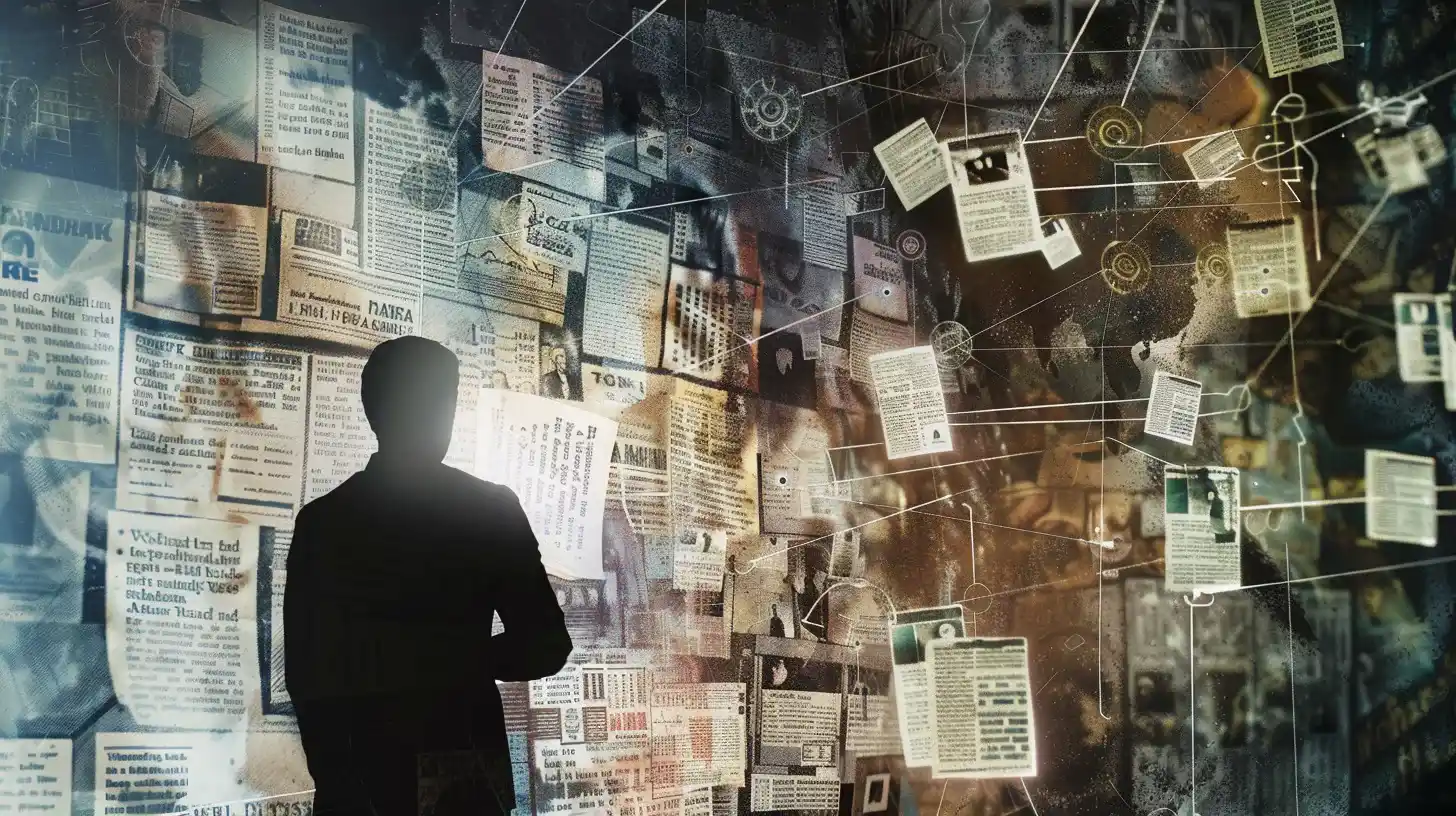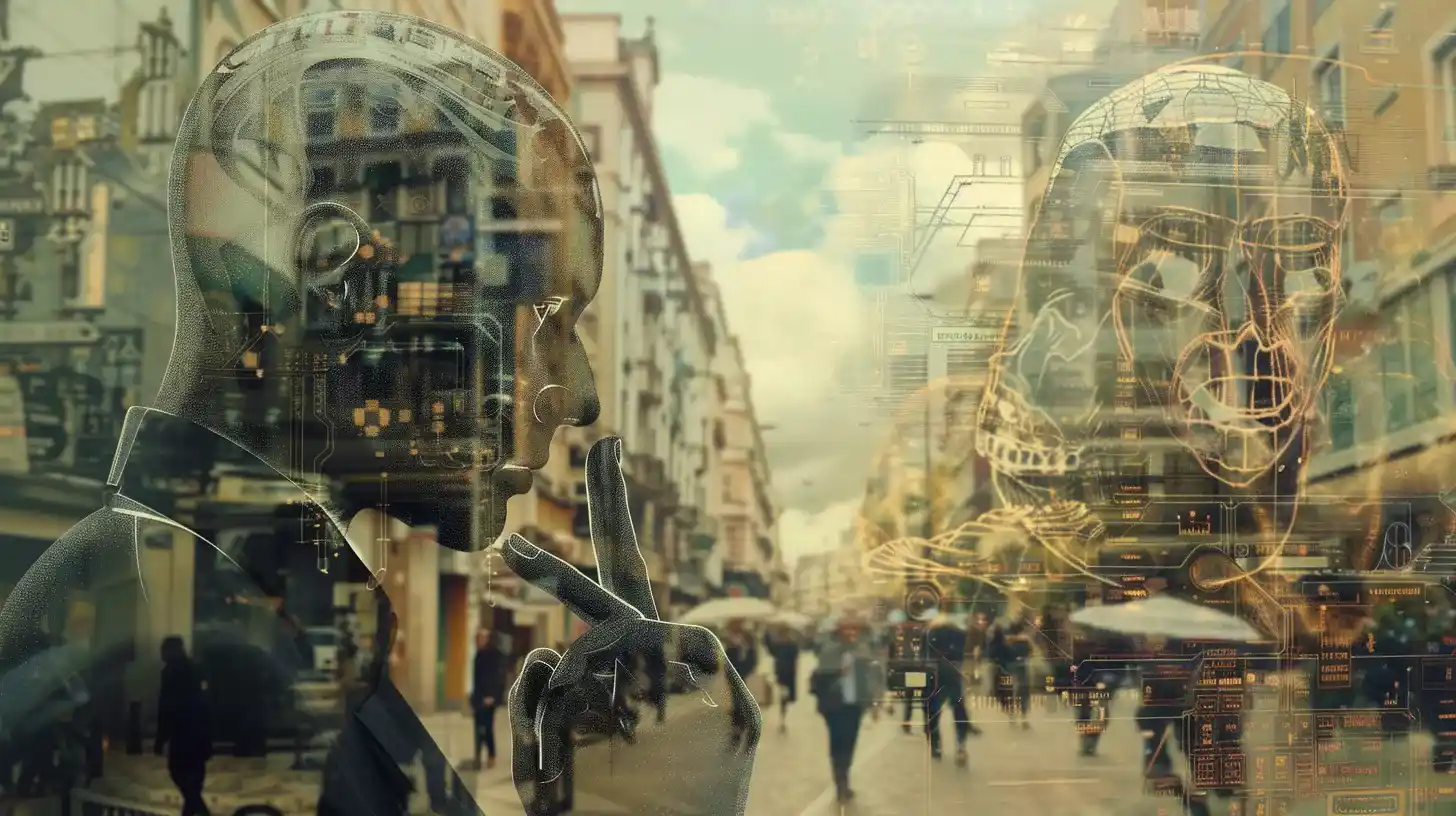Table of Contents
The recent surge of viral AI-altered Hitler Videos showcasing Adolf Hitler’s 1939 Reichstag speech marks a controversial chapter in the manipulation of historical events through advanced technology. These videos, translated from German to English via AI, have captivated over 15 million viewers, sparking a wide array of reactions and discussions about the ethical implications of such content.
AI Technology Brings History to Life
The AI-Altered Hitler Videos, originating from a speech where Hitler ominously declared the war would lead to the “annihilation of the Jewish race in Europe,” have been brought to the forefront of digital consciousness through the work of a far-right conspiracy influencer known as Dom Lucre. His actions on the social media platform X have not only amplified the reach of these videos but also highlighted the potent combination of historical content and modern technology.
Despite the clear indication that the speech was translated using AI, the AI-altered Hitler Videos have stirred considerable interest and debate among viewers.

The Role of Social Media in Historical Narratives
The distribution of these videos by Lucre, a figure previously associated with sharing harmful content, underscores the complex role social media plays in shaping historical narratives. The comments section of these posts reveals a spectrum of interpretations, from misguided admiration for Nazi ideology to erroneous claims about Hitler’s intentions regarding the war.
Such reactions demonstrate the critical need for responsible content dissemination and the dangers of historical revisionism.
In parallel, another conspiracy theorist, Owen Benjamin, contributed to the misinformation by misrepresenting Hitler’s stance in the war, further complicating public understanding of these events. The engagement these videos have received underscores the influence of social media in reinterpreting historical facts, often with significant consequences.
Ethical Concerns and Corporate Responsibility
The emergence of these AI-altered Hitler Videos from a background of previously controversial content by creators like Time Unveiled, which also featured figures such as Osama bin Laden and Joseph Stalin, raises pressing ethical questions. The use of ElevenLabs’ voice-cloning technology, despite its innovative potential, has faced scrutiny for enabling the creation of misleading or harmful content, as evidenced by an AI-generated robocall impersonating President Joe Biden earlier this year.
The response, or lack thereof, from platforms like YouTube and Instagram to these developments highlights the ongoing challenges in regulating AI-generated content. While social media companies struggle to balance freedom of expression with the prevention of harm, the removal of one of Lucre’s videos from Instagram over ethical concerns indicates a step towards acknowledging the impact of such content.
The Influence of Conspiracy Theorists
Dominick McGee, known online as Dom Lucre, has carved a niche for himself within conspiracy circles, leveraging his platform to disseminate content that often blurs the line between historical fact and fiction. His influence, bolstered by endorsements from high-profile figures, showcases the powerful role influencers play in shaping public discourse, especially concerning sensitive historical topics.
McGee’s continued presence on social media, despite previous violations of platform policies, underscores the complexities of enforcing content guidelines in an era where digital influence can significantly sway public opinion and interpretation of historical events.
The Impact Misinformation of AI-Altered Hitler Videos
The reactions and interpretations elicited by these AI-altered Hitler videos highlight a broader issue within the digital age: the rapid spread of misinformation. With millions of views and shares, the content has the power to shape perceptions and rewrite narratives, underscoring the need for enhanced media literacy among users. The ease with which historical facts can be manipulated calls for a critical examination of the sources of our information and the motivations behind them.
Regulatory Challenges and Solutions
The regulatory landscape for AI-altered Hitler videos content remains largely undefined, posing significant challenges for both creators and platforms. The controversy surrounding the AI-altered Hitler videos underscores the urgent need for comprehensive policies that address the ethical use of AI in content creation. This includes developing standards for transparency, such as clear labels on AI-generated content, and mechanisms for accountability in cases of misuse.

Collaboration between technology developers, policymakers, and educators is essential in crafting guidelines that balance innovation with ethical considerations. Furthermore, platforms must enhance their content moderation strategies to swiftly identify and mitigate potentially harmful AI-altered Hitler Videos, ensuring a safe and informed digital environment for all users.
The Role of Education in Combatting Misinformation
Amidst the challenges posed by AI-altered Hitler Videos, education emerges as a crucial tool in empowering individuals to navigate the digital landscape critically. By incorporating media literacy into educational curricula, society can foster a generation of informed digital citizens capable of discerning between credible information and manipulative content. This includes understanding the nuances of AI technology, its applications, and the ethical implications of its use.
Educational initiatives should also emphasize the importance of historical accuracy and the dangers of revising or misrepresenting past events. Encouraging critical thinking and research skills can equip individuals to question and verify the information they encounter online, reducing the impact of misinformation and fostering a more informed public discourse.
Moving Forward: The Future of AI in Historical Representation
As technology continues to advance, the potential for AI to enhance our understanding of history is immense. From creating immersive educational experiences to restoring historical archives, AI can play a pivotal role in preserving and interpreting the past. However, this potential can only be realized through a commitment to ethical standards and responsible use.
The controversy generated by the AI-altered Hitler videos serves as a crucial reminder of the responsibilities that come with technological innovation. By addressing the ethical, regulatory, and educational challenges highlighted by this incident, society can harness the power of AI to enrich our understanding of history while safeguarding against the risks of misinformation and manipulation.
The path forward requires a collective effort to ensure that technology serves as a tool for enlightenment, not distortion, shaping a future where historical integrity and digital innovation coexist harmoniously.
Conclusion: Navigating the Intersection of AI and History
The viral spread of AI-altered Hitler videos serves as a stark reminder of the double-edged sword that is modern technology. While AI has the potential to educate and illuminate aspects of history in unprecedented ways, its misuse can distort historical understanding and perpetuate harmful ideologies.
As society grapples with these challenges, the importance of ethical guidelines, responsible content creation, and critical engagement with digital media has never been more apparent.